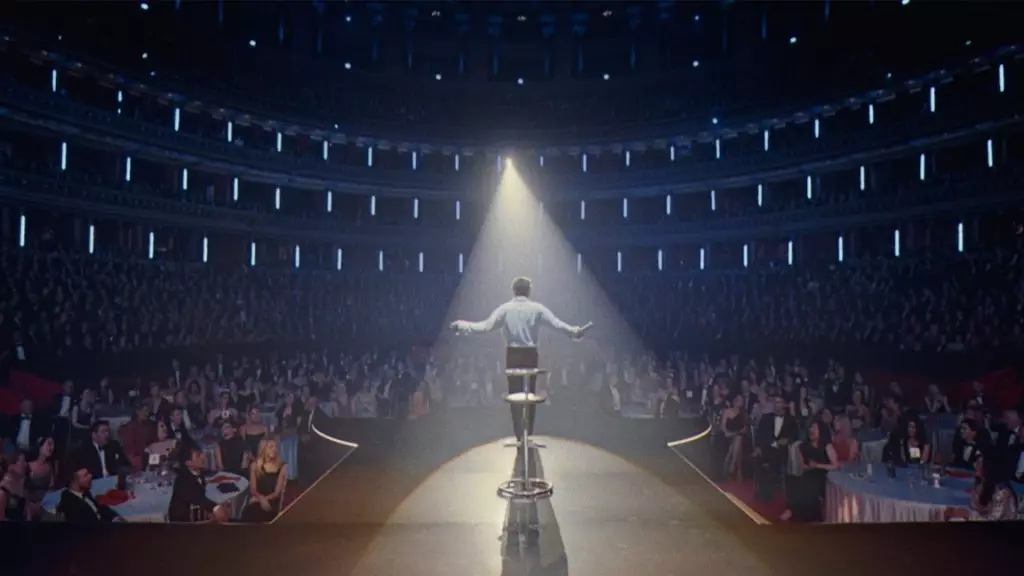In a poignant statement to Deadline over the weekend, British pop sensation Robbie Williams opened up about the profound impact of Liam Payne’s tragic death. Payne, a former member of the globally celebrated boy band One Direction, passed away at the age of 31, following an unfortunate accident in Buenos Aires. Williams, whose career began at a young age in another prominent boy band, Take That, expressed the depths of his sorrow, stating, “I’m sat in depression, and I’m sat in sadness. A huge part of that is Liam-shaped.” Such an emotive admission illustrates not only the pain of loss but also the heavy burden that fame can impose on individuals, particularly within the music industry.
Williams does not shy away from criticizing the societal structures surrounding fame, urging a re-evaluation of how celebrity culture is navigated. He boldly claimed that if changes are not made — “if it isn’t me, then who?” — then it is a collective failure, suggesting that inaction contributes to ongoing issues faced by artists in the limelight. Williams’ reflections resonate deeply in an age where mental health struggles among celebrities are increasingly common, sparking discussions about the need for better support systems in the entertainment industry.
Payne’s untimely demise serves as a stark reminder of the pressures that accompany rapid fame, a reality that Williams knows all too well. Both artists were thrust into the spotlight as teenagers, navigating the complexities of public life while grappling with personal challenges. Williams, who gained fame at 16, understands the intricacies of this lifestyle, notably those that lead to feelings of isolation and despair. His conversation does not just encapsulate Payne’s life; it opens the door to a broader discussion regarding the toll of celebrity culture on mental health.
During the interview, Williams addressed the role of social media in exacerbating these challenges, articulating that the issues resulting from fame extend far beyond the personal struggles of individual celebrities. He acknowledged the contributions of emerging voices like singer-songwriter Chappell Roan, who criticizes the scrutiny placed on artists. Williams applauded Roan’s courage in voicing these concerns, stating that such discussions are essential to confront the stigma surrounding mental health and celebrity culture.
In a heartfelt tribute, Williams reflected on his time mentoring Payne and the other members of One Direction during their early years on The X-Factor. He reminisced about his own experiences in the industry, comparing them to the unique challenges faced by the younger generation of artists. While he admits that his role as a mentor was informal, he recognizes the enduring bond that was formed, rooted in shared experiences and camaraderie. The playful banter he shared with the group reflects a sentiment of nostalgia but also a deeper understanding of the struggles that accompany great success.
Williams’s candid acknowledgment of his frailty and the weight of the public eye offers a glimpse into the complexities of fame. He recounts being ridiculed for voicing his discomfort with the pressures of stardom, emphasizing the importance of opening up about these feelings instead of succumbing to the stereotype of the “grateful” celebrity. It underlines the idea that even those who appear to have it all can feel lost, a message that is particularly relevant in modern society, where mental health awareness is becoming increasingly vital.
Ultimately, the loss of Liam Payne has prompted a call to action from Williams — one that is not merely focused on the music industry but extends to societal responsibility. He emphasizes the need for awareness and change surrounding mental health, urging individuals to recognize their role in perpetuating harmful norms. In mourning Payne, Williams champions the idea that it’s not simply a celebrity issue but a human issue; everyone plays a part in creating a more supportive environment for those grappling with the pressures of fame.
In this regard, Robbie Williams stands as a figure at the intersection of grief, remembrance, and advocacy. His reflections not only honor the memory of Liam Payne but challenge society to reassess its relationship with celebrity and fame. As we navigate an increasingly complex world, it becomes crucial to listen to voices like Williams’s and acknowledge the human cost of fame that often goes unnoticed.

